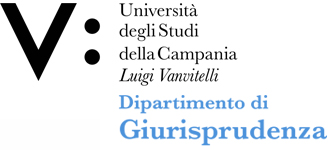Raffaele PICARO
Insegnamento di DIRITTO DI FAMIGLIA
Corso di laurea magistrale a ciclo unico in GIURISPRUDENZA
SSD: IUS/01
CFU: 6,00
ORE PER UNITÀ DIDATTICA: 36,00
Periodo di Erogazione: Secondo Semestre
Italiano
| Lingua di insegnamento | Italiano |
| Contenuti | La comunità familiare tra realtà sociale e ordinamento giuridico. La famiglia nell’età della globalizzazione. - |
| Testi di riferimento | Le parti dedicate al diritto di famiglia di cui alternativamente ai seguenti testi: |
| Obiettivi formativi | L’insegnamento mira ad approfondire la natura della formazione familiare in costante divenire sebbene |
| Prerequisiti | Propedeuticità: Istituzioni di diritto privato. |
| Metodologie didattiche | Il corso si articola in lezioni frontali e interattive e prevede l’utilizzo di supporti informatici. |
| Metodi di valutazione | Prova orale |
| Altre informazioni | Lo studio dei testi di cui sopra deve essere integrato con gli approfondimenti della legge 10 dicembre 2012, |
| Programma del corso | Le relazioni familiari e i nuovi equilibri giuridici; Dinamismo dei rapporti e evoluzione degli stati familiari; Atti e pubblicità di stato civile; Matrimonio; Unione civile; Statuto del rapporto ed organizzazione e economia della famiglia; I regimi patrimoniali legali: comunione legale e impresa familiare; La crisi della coppia: separazione e divorzio; Le convivenze di fatto e la pubblicità anagrafica; Cessazione della convivenza; Stato unico di figlio e accertamento della filiazione; Le tecnologie genetiche tra aspirazioni e doveri; Statuto della filiazione e responsabilità genitoriale; Crisi tra i genitori e provvedimenti per i figli |
English
| Teaching language | Italian |
| Contents | Family law is a branch of Private Law that studies the set of rules governing family relationships. |
| Textbook and course materials | P. PERLINGIERI, Manuale di Diritto civile, Napoli, 2021, limited to the part indicated below: Part VII |
| Course objectives | The course aims to explore the nature of family formation, which is in a constant state of evolution, although always faithful to itself, and it is a reflection of the economic, social and cultural transformations that are occurring in our society, by focusing on the impact of certain processes upon the anthropology of family roles. |
| Prerequisites | Prerequisites: Institutions of Private Law. |
| Teaching methods | The course is divided into face-to-face and interactive lectures, and it includes the use of computer systems. |
| Evaluation methods | There will be a final oral exam with a grade measured in thirtieths. |
| Other information | It is advisable to accompany the study of the reference texts with the consultation of G. PERLINGIERI e M. ANGELONE, Codice civile con Costituzione, Trattati UE e Trattati FUE, Leggi complementari e Codici di settore, Napoli, 2020. |
| Course Syllabus | Family relationships and new legal balances; dynamism of relationships dynamism and evolution of family status. Marriage. Civil partnership. Status of the relationship, and organisation and economy of the family; Legal property regimes: legal communion and family business; Marital crisis: separation and divorce; De facto cohabitation and anagraphic publicity; Single child status and verification of parentage; Genetic technologies between aspirations and duties; Statute of parentage and parental responsibility; Crisis between parents and measures for children. |








